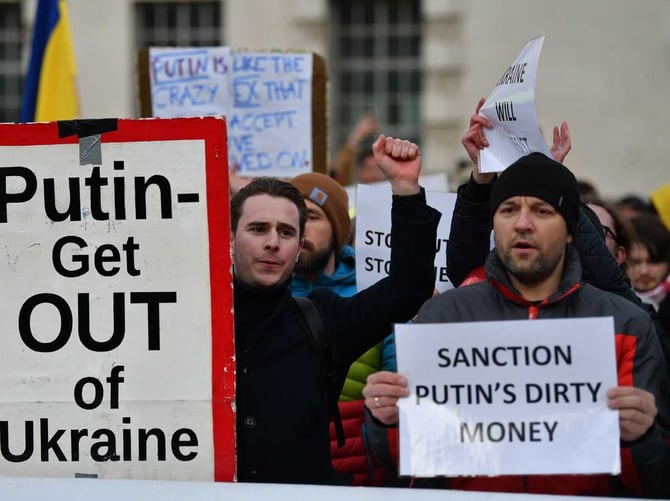Global Economy Still Reeling as Sanctions Bite Russia

The global economy was still in turmoil at the start of the second week of Russia’s invasion of Ukraine, with most markets losing value as investors remained deeply shaken.
On Wall Street, Dow futures slid 1.7%, nearly 600 points. Meanwhile, S&P 500 futures fell 2% and NASDAQ futures were 2.7% lower.
Many Asian markets declined. Hong Kong's Hang Seng led the way, losing 1.4%. China's Shanghai Composite slid 0.1%, and Japan's Nikkei 225 shed 0.3%.
Oil prices were most concerning to investors. Brent crude rose 4.2% to $102.05 a barrel, while US crude rose 5.2% to $96.33 a barrel.
The Russian ruble continued its fall, tumbling 36% against the US dollar to 114.11 as the full scale of Western sanctions became known.
The starkest warning to Russia came with Western countries threatening to remove the country’s banks from SWIFT, the high-security global banking network, a move that could effectively cripple Russia’s financial system.
What does this mean for me?
As foretold by market watchers since the start of the conflict, events in Ukraine have had an impact on the entire global system.
While many countries were battling high inflation and their own internal challenges, they now find themselves hostage to a conflict that has put these problems in the shade momentarily.
For the moment at least, high consumer prices and elevated inflation appear to be on the back burner as the world is gripped by an armed conflict that could have devastating effects on the global economy.
More News

Trump Drops Selected Tariffs in Response to Inflation Pressures

Tariffs on Mexico Test Nuevo Leon’s Industrial Momentum

US Moves to Ease Latin American Tariffs as Food Inflation Mounts

Japan Faces First GDP Shrinkage in Six Quarters as Tariffs Bite

India’s Inflation Dip Strengthens Case for RBI Easing

Europe Rallies as Shutdown Eases, Earnings Impress

Germany’s Trade Surplus Slides as Imports Outpace Exports
